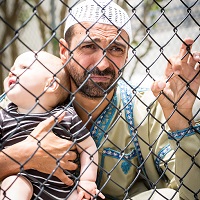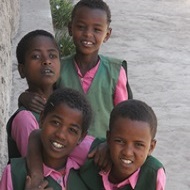The images of the humanitarian crisis in Syria have made many—individuals and organizations alike—question what they can do to help. Yet a recent Washington Post article highlighted an issue that has been slowing assistance from reaching desperately needy individuals: regulation and risk aversion that are making it difficult to get assistance to those who need it most. The article focuses on a recent report, funded by the Bill and Melinda Gates Foundation, that shows two-thirds of all U.S. charities that work abroad are reporting difficulties accessing financial services. The 305 charities surveyed reported delays in wire transfers, requests for additional unusual documentation, increased fees and account freezes and closures.
For example, a U.S.-based 501(c)(3) organization—the Syrian American Medical Society—was trying to get medical supplies to hospitals in Syria during the height of the military siege of Aleppo last year. However, its U.S.-based bank would not wire $80,000 abroad to allow a vendor to purchase the supplies; the wire transfer was finally completed six months later, when the siege was essentially over. In addition, another U.S.-based 501(c)(3) that works to promote gender equality in regions including sub-Saharan Africa had its accounts frozen by Citibank earlier this year.
The Washington Post article highlights that:
The wire transfer delays during last summer’s bloody campaign in Aleppo reflect a broad pattern: At a time of historic humanitarian need, banks are increasingly hesitant to conduct business with charities that work in disaster zones for fear that they could be caught up in funding international terrorism.
Known in charity circles as “derisking,” because banks are seeking to avoid rather than manage risk, the issue has been brewing for about three years, largely as an unintended consequence of stepped-up efforts to counter terrorism financing, charity advocates and finance professionals say.
“Derisking” has its roots largely in well-intended laws that were enacted or tightened after the terrorist attacks of September 11, 2001, including the PATRIOT Act and Executive Order 13224. Organizations like nonprofits and banks can face civil and criminal penalties for noncompliance, and as such, the need to address risk is very real. However, efforts on the part of banks and other institutions to eliminate risk can clash with the work of nonprofits that must instead manage it in order to accomplish their charitable and humanitarian missions.
For nonprofit organizations looking to mitigate risk in the international area, a starting point often is reviewing publications such as the U.S. Treasury Department’s “Anti-Terrorist Financing Guidelines: Voluntary Best Practices for U.S. Practices for U.S.-Based Charities” and the “Principles of International Charity,” which was developed by a working group of charitable organizations including the Council on Foundations. From there, nonprofits distill a process for due diligence and risk management that makes sense for them. Typically, it may include one or more of the following:
- Dealing with U.S.-based organizations rather than foreign nonprofits or NGOs (though of course it is perfectly appropriate in many circumstances to work with an NGO);
- Checking the name of the recipient charity, as well as the names of its directors, officers, and key staff, against the Specially Designated Nationals (SDN) list maintained by the U.S. Treasury’s Office of Foreign Assets Control (OFAC);
- Requiring grantees to certify that grant funds will be used exclusively for charitable purposes and not to support terrorist activity; and
- Limiting re-granting of funds unless the grantee agrees to take certain actions, such as checking the secondary grantees name against the SDN list.
However, a concerning takeaway from the Washington Post article is that, regardless of the care that a nonprofit takes in mitigating risk and making an informed decision to grant to an NGO, to work with a U.S.-based charity or to undertake its own programs abroad, its efforts may be hampered by banks or other institutions that are looking to avoid risk entirely. This is definitely something nonprofits need to take into account when working toward a specific task (e.g., getting medical supplies to areas where they are needed right away). And hopefully, it is an area where better balance can be achieved, so that those facing war, sickness and other calamities can be helped when they need it most.


